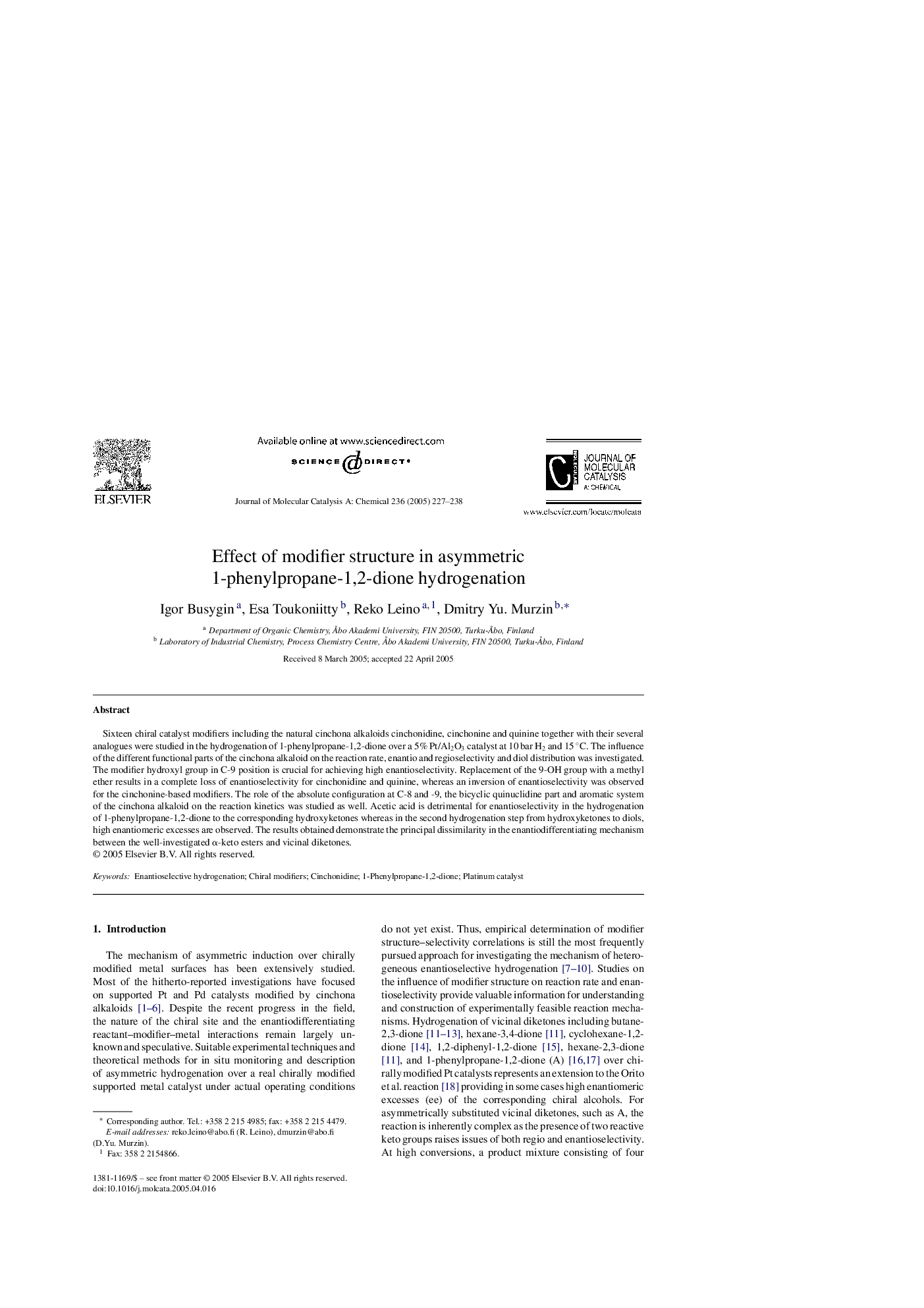| Article ID | Journal | Published Year | Pages | File Type |
|---|---|---|---|---|
| 9614623 | Journal of Molecular Catalysis A: Chemical | 2005 | 12 Pages |
Abstract
Sixteen chiral catalyst modifiers including the natural cinchona alkaloids cinchonidine, cinchonine and quinine together with their several analogues were studied in the hydrogenation of 1-phenylpropane-1,2-dione over a 5% Pt/Al2O3 catalyst at 10 bar H2 and 15 °C. The influence of the different functional parts of the cinchona alkaloid on the reaction rate, enantio and regioselectivity and diol distribution was investigated. The modifier hydroxyl group in C-9 position is crucial for achieving high enantioselectivity. Replacement of the 9-OH group with a methyl ether results in a complete loss of enantioselectivity for cinchonidine and quinine, whereas an inversion of enantioselectivity was observed for the cinchonine-based modifiers. The role of the absolute configuration at C-8 and -9, the bicyclic quinuclidine part and aromatic system of the cinchona alkaloid on the reaction kinetics was studied as well. Acetic acid is detrimental for enantioselectivity in the hydrogenation of 1-phenylpropane-1,2-dione to the corresponding hydroxyketones whereas in the second hydrogenation step from hydroxyketones to diols, high enantiomeric excesses are observed. The results obtained demonstrate the principal dissimilarity in the enantiodifferentiating mechanism between the well-investigated α-keto esters and vicinal diketones.
Related Topics
Physical Sciences and Engineering
Chemical Engineering
Catalysis
Authors
Igor Busygin, Esa Toukoniitty, Reko Leino, Dmitry Yu. Murzin,
